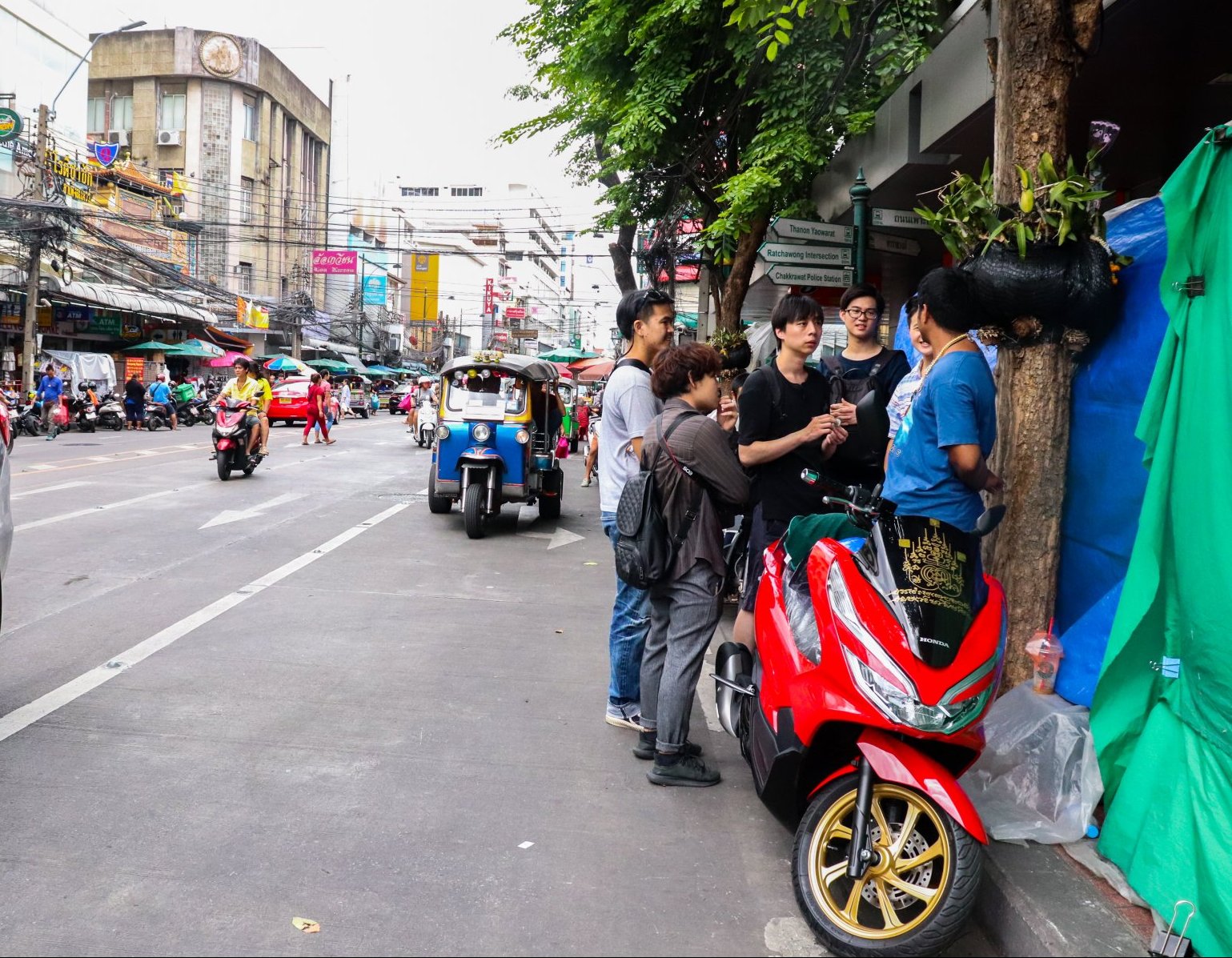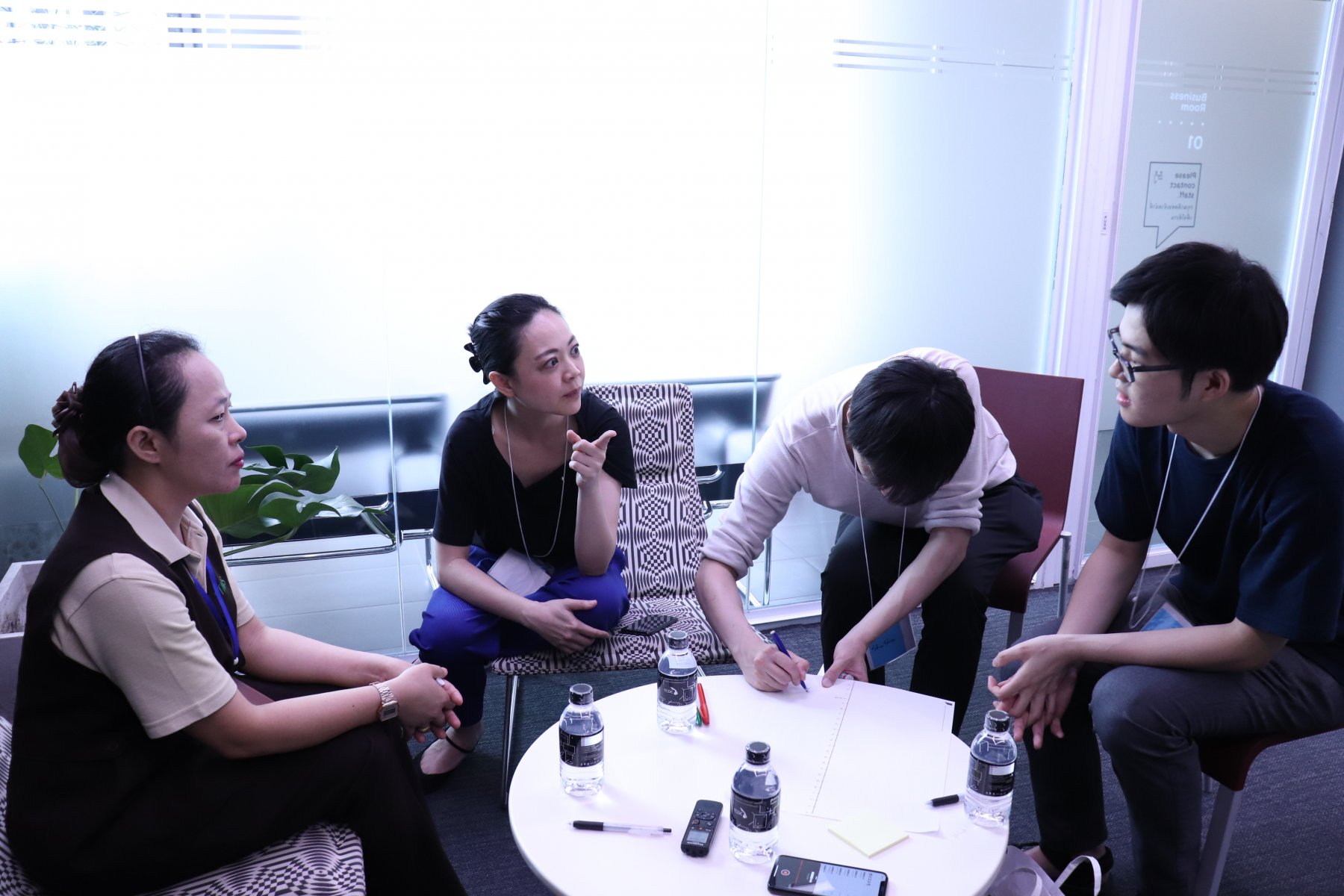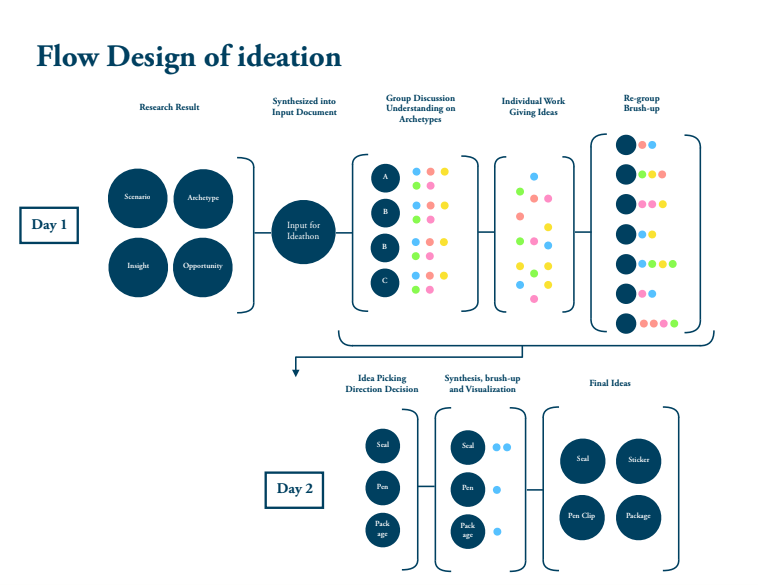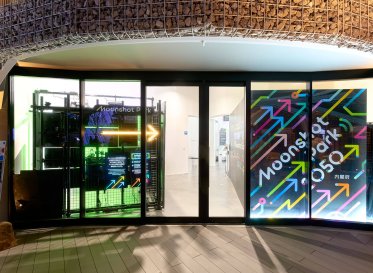
Thai inhaler product design research for Japanese market entry
Through design thinking, Loftwork/FabCafe Bangkok and the Thai cosmetic company- 003 Beauty Center discovered opportunities for Yadom in Japan and generated new product ideas for 003 Beauty Center to enter the market.
Summary
The challenge
Identify opportunities for Yadom – or Thai inhaler culture – in the Japanese market and generate design ideas for a new Yadom product for Thai cosmeceutical company 003 Beauty Center to launch Japan.
The outcome
Ideas for four Yadom products ideas that specifically met Japanese customer needs, achieved through design research and ideation.

Objective
Entering a foreign market is always tricky, especially when trying to introduce culture-specific products. Seeking to expand, Thai cosmeceutical company 003 Beauty Center sought out FabCafe Bangkok/Loftwork to help clarify opportunities for Yadom – or Thai inhaler culture – in Japan.
Through design research and ideation, FabCafe Bangkok/Loftwork and 003 Beauty Center generated multiple new product ideas that addressed local Japanese customer needs for 003 Beauty Center to introduce Yadom culture to the Japanese public.
Process
Pre- and desktop research
Developing hypotheses and research targets
The first step was to decide on the field research hypothesis and research targets. To achieve this, the Loftwork Japan team, FabCafe Bangkok and 003 Beauty conducted preliminary research on Thai inhaler culture through hearing from users and gathering data from desktop research.

The research identified two types of customers of Yadom in Thailand:
- The body-extreamer – people who used Yadom for its physical effects
- The mind-extreamer – people who used Yadom for its mental effects
Field research in Bangkok
Exploring yadom in the origin market
Loftwork, FabCafe Bangkok and 003 Beauty then carried out intensive multi-stage field research in the Thai capital in order to better understand the market where Yadom originated and user behavior in the local market. On the first day, the team visited and observed Yadom shops in both markets and luxury department stores in Bangkok, conducting ad-hoc interviews with customers on the ground about their motives and usage of Yadom and spent time observing people’s behavior on public transportation to gain insight into daily life routines.
After that, the team carried out in-depth interviews with seven body extreamers and mind extreamers to gain insight into the potential utility of Yadom for the body and mind. Subjects were asked to discuss the different types of Yadom products they used and give suggestions on improvements for both the experience and design of each product. They also gave examples of specific scenarios of Yadom usage throughout their daily routines, which would later serve as input for the ideation event.

The team then synthesized the findings to better comprehend subject behavior, specifically what benefits subjects used Yadom for, how they used Yadom, the type of Yadom they used, and when and where they used Yadom. They also gathered information and facts not directly related to specific usage scenarios and grouped them using the KJ method to form insights about common usage of and considerations of using Yadom.
Field research in Tokyo
Understanding the needs of Yadom in Japan for market entry
The next step was to conduct field research in Tokyo. Since Yadom is rarely used in Tokyo, the team focused on interviewing existing users of similar products to understand the needs in the Japanese market, conducting in-depth interviews with seven subjects across three types of users gathered from the field research in Bangkok:
- Body-product user – People who use products with body effects such as deodorant spray.
- Mind-product user – People who use products with mind effects such as aroma.
- Existing Yadom users – People who use Yadom in Japan.

After integrating the interviewees’ comments using the KJ method, the team found that the same body to mind axis existed in Japan but that the specific needs of Japanese users lay in how much the subject cared about how they were perceived by others. From this, the team identified the following three archetypes:
- Body-heavy users who weren’t as concerned with how they were perceived by others as they had specific body issues and were forced to use inhaler products such as mosquito repellent, deodorants, hay fever, to resolve their symptoms.
- Mind-light users who were most concerned with how the products they were using were viewed by others and kept up with trends through frequent consumption of various media.
Mind-heavy users who have already satisfied their physical needs and have storng mental and/or emotional needs that stem from a desire to keep themselves in good condition.

For each archetype, the team defined the characteristic needs, values and philosophy and opportunity areas, problems that would provide more opportunities for sales if solved.
Workshop
Designing a Yadom product
Loftwork then held a two day ideation workshop in Tokyo to design a Yadom product for 003 Beauty to best enter the Japan market. The first day consisted of 20 participants including designers, aroma experts, market planners, students, 003Beauty team members and Loftwork staff. Taking the insights obtained from the research results as inputs, participants ideated on a new Yadom product that would address the archetypes’ opportunity areas and bring happiness to people through its scent. Participants were then asked to share their ideas and give feedback before visualizing their ideas.

On the second day, four product designers, 003Beauty team members and Loftwork staff then selected, complemented and synthesized the ideas from day one to come up with final ideas for a Yadom product that would meet the needs of the Japanese market.
Outputs
The workshop gathered the potential ideas and grouped them into good ideas and those that contained good elements of an idea.

The team then refined the potential ideas down to four final ideas for products that would address the specific needs of the Japanese market. For each, they came up with a clear product description, ways to use the product, and specific scenarios about how the product would be used by the various archetypes or customer personas.These addressed and were positioned around specific aspects of Japanese culture – such as products that could work with Japanese people’s habit of wearing masks – as well as all aspects of different customers’ lifestyles.
About Loftwork
Loftwork is a creative company dedicated to making a positive impact through design with a global community of innovators. Aside from providing innovative design solutions to global clients across various industries, Loftwork also operates a number of owned services and platforms. Learn more.
Subscribe to Loftwork Magazine for more stories in designs & innovation here.









